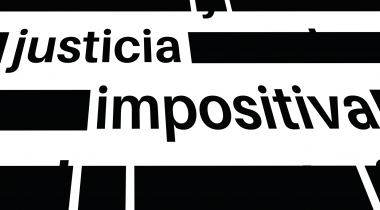
Naomi Fowler ■ A Tax Justice Network How-To Guide on solving secrecy risks around Trusts

The Tax Justice Network has today released a new report: The case for registering trusts – and how to do it. Many people would have you believe that solving secrecy risks around trusts is impossibly complicated. Now we show it isn’t. Another objection often raised is that it’s not worth the cost. Well, we think it is. And not only that, but technology now makes it affordable. We release our report just as the EU Commission is discussing an amendment to the 4th EU Anti-Money Laundering Directive regarding the registration of trusts and public disclosure.
While there has been some progress on transparency around the ownership of companies, when it comes to trusts, the UK has been busy opposing all EU moves. And, in a significant set-back in this area, France’s Constitutional Council recently cancelled the trailblazing new French trust registry over ‘privacy rights’, a case which was succesfully brought by a US national.
As we show in the new report we release today, transparency on trusts is necessary, in the public interest and quite feasible (despite what most people including some in civil society might believe, even within civil society groups). Not only that, but public access to this information, (as with public access to the owners of offshore companies) is crucial because trusts cannot be only private matters (despite the French court ruling) and because we simply can’t trust authorities to do the right thing. We urgently need some accountability here.
The secrecy offered by companies, trusts and similar entities and arrangements creates serious problems for society by enabling crimes and abuses like corruption, tax evasion, market rigging, money laundering and Ponzi schemes. In most countries there’s wide public agreement about the risks posed by secrecy and support for concrete action. The Tax Justice Network has workable proposals which will cut through the disagreements on how to address these risks.
There are a range of objections to opening up the Trusts sector. Secrecy-enabling lawyers, accountants, bankers and other corporate service providers will suggest doing nothing new, and advocate for the watering down or undoing of transparency progress made. Central to their argument is that abuses involving trusts are just a few bad apples in an otherwise healthy system – and that the right to privacy outweighs any benefits.
Most governments and international organisations – for example the key global rule setter the OECD (dominated by rich countries with their own interests in the secrecy services sector) and the Financial Action Task Force which tackles money laundering – were kind of in the middle. Until recently. They agreed that secrecy poses risks, but they were persuaded that the best way to address it was to rely on the private sector and its enablers, including financial institutions, to perform customer due diligence and know-your-client policies. If corporate and financial service providers knew who they were dealing with, was the argument, there was nothing to worry about: they would report suspicious transactions and authorities could ask for information from them when needed. If the actors broke the law, they would be punished. This seemed like a cost-effective and light-touch solution[i].
Civil society moves to shift the debate
In recent years, however, civil society bodies have fought to shift the balance, with some success.
Relying only on service providers and financial institutions to collect and hold ownership information won’t work. The ‘service’ many of them provide is to find ways to skirt or evade the rules: their very business model makes them untrustworthy. When authorities need the information, the service provider may tip off clients, no matter what the law says, allowing evasive manouevres. And by the time authorities ask for the data, it may be too late. For example, even big banks like HSBC have been found involved deep in drugs-related money laundering transactions and violation of U.S. sanctions. In fact, it was the direct involvement of trusted Swiss banks such as UBS and Credit Suisse (considered ‘Qualified Intermediaries’ by the U.S.) to help U.S. Americans evade taxes that led the U.S. to enact its famous FATCA (Foreign Account Tax Compliance Act) regulations.
Making the problem worse, tax havens have an incentive to assist evaders, avoiders and cheats, hoping to hoover up dirty money by doing so.
For many civil society bodies it is clear that it is time for the registration of the beneficial owners of all types of entities (e.g. companies) and arrangements (e.g. trusts). No entity or arrangement should be allowed to operate in a country (e.g. open a bank account, buy real estate, provide services, etc.) unless at the very least, authorities have access to information on the real warm-blooded people owning or controlling them[ii].
First step towards full transparency: companies
In a closer step towards transparency, in 2015 some governments (especially the European Union with its 4th Anti Money Laundering (AML) Directive started to require registration of companies’ beneficial owners (the natural persons who actually own or control companies). While companies always had to incorporate in order to exist, registering their beneficial owners in a central register became a new requirement, before only available to their service providers.
A question being discussed now, is whether to give the public access to basic beneficial ownership information. The EU Commission is proposing an amendment to include this. The Tax Justice Network believes making ownership information public is the right, democratic move.
While the British Prime Minister at the time, David Cameron hosted an anti-corruption summit and championed the idea of beneficial ownership registers of offshore companies he failed to bring the UK ‘satellite havens’ or Crown Territories and Overseas territories into line. Worse, he personally intervened in the EU to exempt Trusts from transparency measures. He himself was exposed by the Panama Papers as a beneficiary of his late father’s offshore trust.
Trusts: where to set the bar?
The 2015 EU AML Directive also contains innovative requirements to register the beneficial owners of some trusts (those that generate fiscal consequences). A 2016 amendment proposed by the EU Commission would extend beneficial ownership registration to all trusts managed by a resident trustee, and possibly public disclosure of some information.
Currently, however, there is some disagreement, even among some civil society organisations, about where to set the bar. Some agree that in an ideal world, we need availability of beneficial ownership registration for any type of entity and arrangement, but consider that the costs and complexities of registration is impractical, especially with regard to trusts. Trusts are potentially more slippery and difficult to tackle than shell companies, and millions of people, even people who aren’t that rich, are involved with trusts: deep reform would be just too big a job to countenance. In essence, those who highlight the difficulties argue that stronger rules for service providers and financial institutions, coupled with provisions to outlaw trusts from some offshore jurisdictions, would do the job, if imperfectly, in a far more cost-effective way.
It seems that opposition to trust beneficial ownership registration is not a matter of principle, but of costs and complexities. Here we present another view.
[i] In some cases, however, information has to be reported upfront to authorities: when a company or trust or its related parties have taxable income, for instance. Enforcement depends on how hefty the sanction and how likely it is that someone will be discovered for not reporting.
[ii] This obviously involves some sunk and fixed costs, since every entity would have to be registered, even if they were not involved in any illegal or illegitimate activity. However, this already applies to any type of entity that needs to incorporate, as well as to any person that is born, enters or leaves a country or opens a bank account. We cannot identify the bad guys a priori.
Once again, our latest report is available here and will be permanently available in our Reports page.
Media contacts for further comment:
Andres Knobel (+54911) 608-3197 [email protected]
Markus Meinzer [email protected]
Related articles

The secrecy enablers strike back: weaponising privacy against transparency
Privacy-Washing & Beneficial Ownership Transparency
26 March 2024

Inequality Inc.: How the war on tax fuels inequality and what we can do about it

New Tax Justice Network podcast website launched!

El secreto fiscal…tiene cara de mujer: January 2024 Spanish language tax justice podcast, Justicia ImPositiva

Tax Justice Network Arabic podcast #73: ملخص 2023

Get rich cheating in our (educational) tax dodgers version of monopoly
Why beneficial ownership frameworks aren’t working – and what to do about it
20 December 2023

New report on how to fix beneficial ownership frameworks, so they actually work


